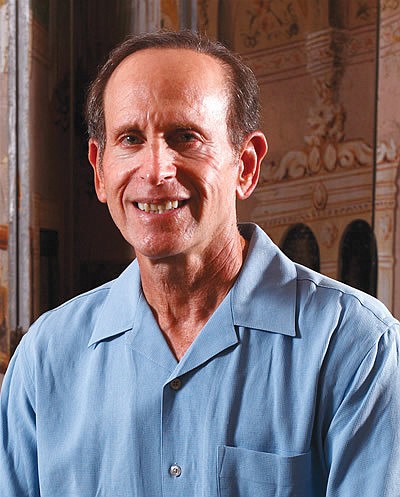- November 23, 2024
-
-
Loading

Loading

My wife and I moved to Sarasota almost 20 years ago. We chose this community because it was beautiful, arts-oriented, small, peaceful and civilized.
Maybe it’s just me, but, lately, as more people have discovered our paradise — from Longboat to North Port — I’ve seen an increase in rudeness, crudeness, incivility, disrespect and bad manners.
Several recent polls, including those of Rasmussen and The Associated Press, confirm that 88% of Americans feel incivility is a serious problem and getting worse.
That personal boundaries don’t count for much anymore is even a topic for scientific study. Neurobiologist Dr. Douglas Fields says, “Americans are rude … American society has changed dramatically with respect to manners and social discourse.” He believes, based upon his research, that the “Leave It to Beaver” model of polite society in the ’50s and early ’60s is gone. The homespun, innocent sitcoms of those years have been replaced today by “garish, reality television programs that showcase domestic violence and social interaction driven by narcissism, factionalism, competition and selfishness.”
Today in Sarasota, there is plenty of rage — air, cell phone, waiting in line, bike, beach, boat, parking — and even drivers who honk at those in wheelchairs.
Field’s research shows that as we get more crowded, people’s stress levels increase. And, of course, there is the emotional and financial fallout from the downturn in the economy. More people are out of work, can’t find jobs, have adult children living at home, a house underwater or in foreclosure, $4-a-gallon gasoline and a decrease in household income. According to Fields, these stressors are “neurotoxic,” causing frustration, anger and bad behavior.
Humorist Henry Alford’s new book, “Would It Kill You to Stop Doing That?” examines today’s bad conduct — from obnoxious cell-phone yappers to inconsiderate drivers and store clerks. His theory is that technological advances have created today’s impolite behavior. From iPods to iPads, we are a society consumed by electronic devices. These devices are fun and helpful; yet, there are downsides to this surge in technology.
Sadly, we have become a culture that demands instant gratification and disregards personal boundaries. That causes a slippage in manners and provides more chances for people to be rude to each other. Think about all the people at the movies who leave their phones on. Their lights glare in your line of sight, and they light up and buzz with incoming messages and calls — which people actually take! Or how about that quiet romantic dinner out, complete with candlelight and your favorite wine, mixed with the high-decibel cell-phone conversation from the table nearby.
The technological ability to tape and pause shows at home blurs the distinction between private and public behavior. On your recliner, you have the freedom to talk with others, eat, yell, get up and walk around or text. Now you see some of these same actions at the movies. Personal boundaries — politeness and courtesy — have almost disappeared.
For solutions, we need to work hard to combat a sense of entitlement that makes us feel that rules don’t apply to us. We need to develop better manners and be mindful of how we would like to be treated.
Try to avoid a me-first attitude. Make a pact with yourself not to talk or text in the movies, push ahead of others in line, change lanes without signaling or cut someone off in traffic. Instead, take a breath, listen to music and be grateful and courteous. Start your week doing some good deeds: Let someone in line, hold the door for the person behind you, say thank you, be patient and smile.
Let’s keep Sarasota the city that Money magazine named the No. 1 place in America to live.
John-Paul Sartre, the noted existentialist philosopher, felt that “hell is other people.”
Let’s prove him wrong.
Dr. Peter A. Wish, a nationally known psychologist and author, is a former award-winning syndicated columnist. He received the third-place award in 2011 from the Florida Press Association for his “Read All About It” column on homeless children and families in Sarasota.